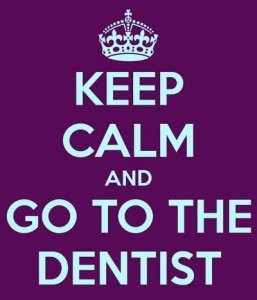Sedation dentistry is an oft misunderstood term. When people hear “sedated” they automatically think they are completely asleep with no knowledge of what is going on around them. Yes, in some cases this is accurate. However, sedation dentistry offers more options than general anesthesia — which can leave you groggy and sedated for hours.
Sedation Dentistry is an option for people who have varying levels of anxiety about dental procedures. There are different levels of sedation, depending on how severe one’s anxiety is.
Sedation Dentistry: Do I Need It?
Sedation dentistry may be right for you if:
- You are extremely anxious about having dental work done
- You are having a long or more complex dental procedure, such as a root canal, multiple extractions, or gum-related work
- Have a bad gag reflex
- Have sensitive teeth
- Have a low threshold for pain
- You have a difficult time remaining still for extended periods of time
Types of Sedation
There are also different types of sedation available:
Minimal sedation: You are awake but very relaxed.
Moderate sedation: You may slur your words and not have much memory of the procedure.
Deep sedation: You are on the edge of consciousness but can still be awakened.
General anesthesia: You are completely unconscious.
In addition to the different types, there are various ways for sedation to be administered:
Inhaled minimal sedation
Nitrous oxide, or laughing gas, is often used for minimal sedation in dentistry. This is one of the forms of sedation we use here at Sunrise. It is breathed through the nose using a mask. The dentist can increase or decrease the amount you receive. It wears off very quickly and is the only method of sedation used in dentistry that will allow you to drive yourself home after a procedure.
Oral sedation
Oral sedation is the most common method of sedation used in sedation dentistry. Depending on the dosages, it can be used for minimal sedation or moderate sedation. Your dentist will prescribe you a small pill, called a tranquilizer—most often prescribed is Valium or Halcion.
For minimal sedation, you are given one pill to take about an hour before your procedure. This will make you drowsy but still awake and very relaxed. For more moderate sedation, your dentist may prescribe you a higher dose of Valium, which can cause some people to fall asleep during a procedure. Even still, most people are easily awakened when the procedure is over. It is the most common type of sedation used in sedation dentistry.
IV moderate sedation
With this type of sedation, the medicine is administered through an IV into your vein. This works very quickly and allows the dentist to make continual adjustments to the amount of sedation you receive. Our dentists do not use this type of sedation.
Are There Risks with Sedation Dentistry?
There are always some risks when you receive anesthesia. The risk level largely depends on your medical history. For example, those with sleep apnea or breathing issues, such as COPD, or who may be severely obese, could develop more breathing problems with anesthesia. You should always get clearance from your general practitioner regarding your risks.
If you have any questions or are considering sedation dentistry for yourself, please do not hesitate to contact our dental offices in
Raleigh,
Durham, or
Chapel Hill.

